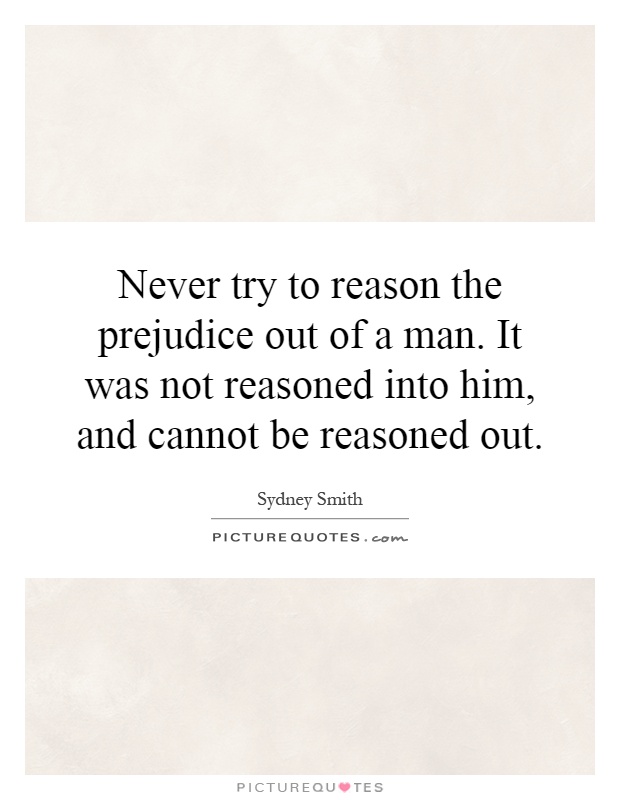Never try to reason the prejudice out of a man. It was not reasoned into him, and cannot be reasoned out

Never try to reason the prejudice out of a man. It was not reasoned into him, and cannot be reasoned out
Sydney Smith, a prominent English writer and clergyman, was known for his wit, humor, and sharp intellect. He was also a staunch advocate for social justice and equality, particularly when it came to combating prejudice and discrimination. One of his most famous quotes is, “Never try to reason the prejudice out of a man. It was not reasoned into him, and cannot be reasoned out.”This quote speaks to the deeply ingrained nature of prejudice and the difficulty of changing someone’s beliefs through logical argument alone. Prejudice is often rooted in fear, ignorance, and cultural conditioning, making it resistant to rational persuasion. Trying to reason with a prejudiced individual can be frustrating and ultimately futile, as their biases are not based on logic or evidence, but on deeply held beliefs and emotions.
Smith’s insight into the nature of prejudice is as relevant today as it was in his time. Despite advances in education, awareness, and social progress, prejudice continues to persist in various forms, from racism and sexism to homophobia and xenophobia. In a world that is increasingly polarized and divided, it can be tempting to engage in debates and arguments with those who hold prejudiced views in the hopes of changing their minds. However, as Smith astutely observes, this approach is often ineffective and can even backfire, reinforcing the other person’s beliefs and entrenching their prejudices further.
Instead of trying to reason with prejudice, Smith believed in the power of empathy, compassion, and education to challenge and ultimately overcome bias. By listening to others with an open mind, engaging in respectful dialogue, and sharing personal stories and experiences, we can create connections and foster understanding across differences. Changing hearts and minds is a gradual and complex process that requires patience, persistence, and a willingness to engage with others in a spirit of mutual respect and empathy.












 Friendship Quotes
Friendship Quotes Love Quotes
Love Quotes Life Quotes
Life Quotes Funny Quotes
Funny Quotes Motivational Quotes
Motivational Quotes Inspirational Quotes
Inspirational Quotes